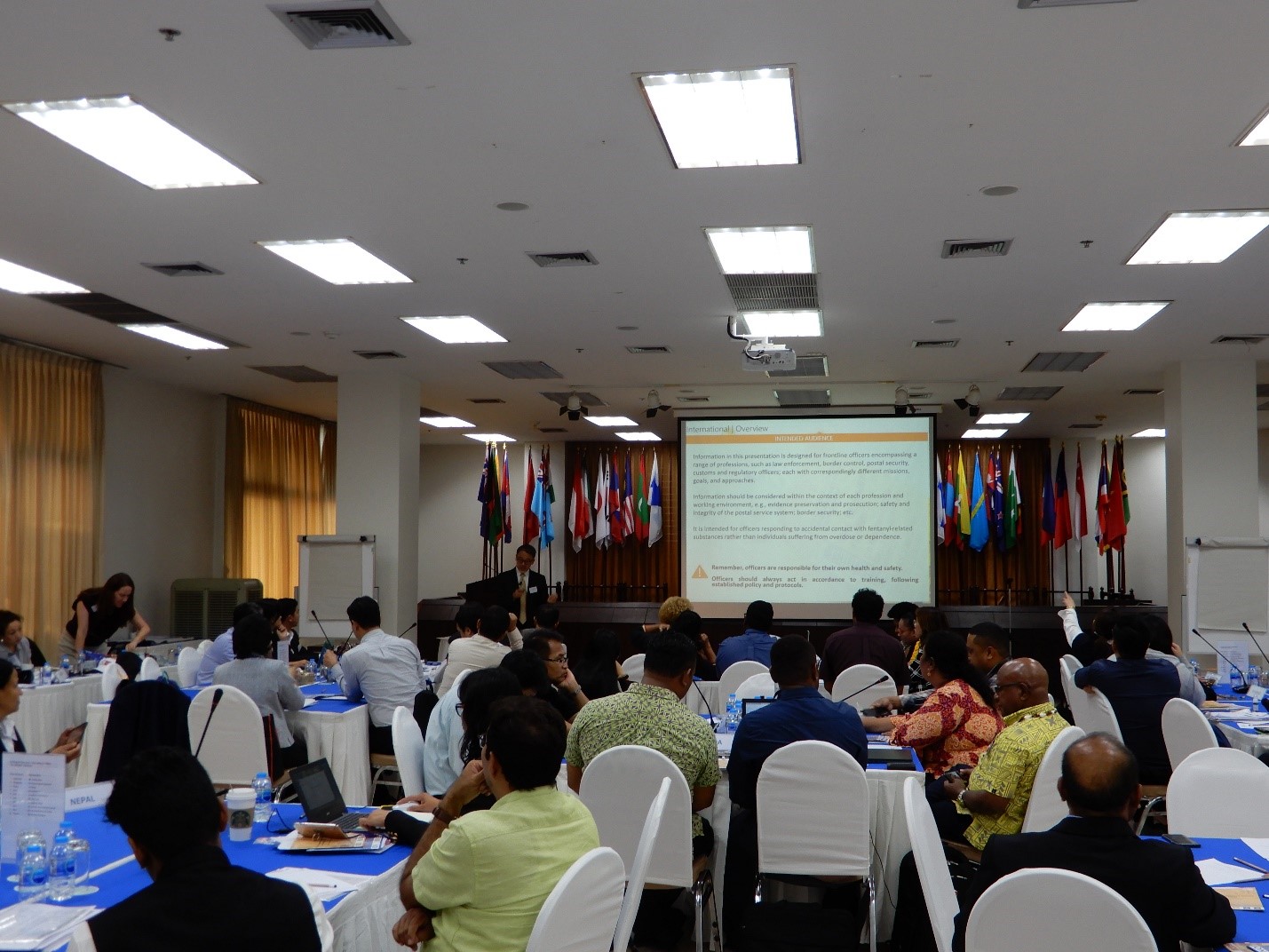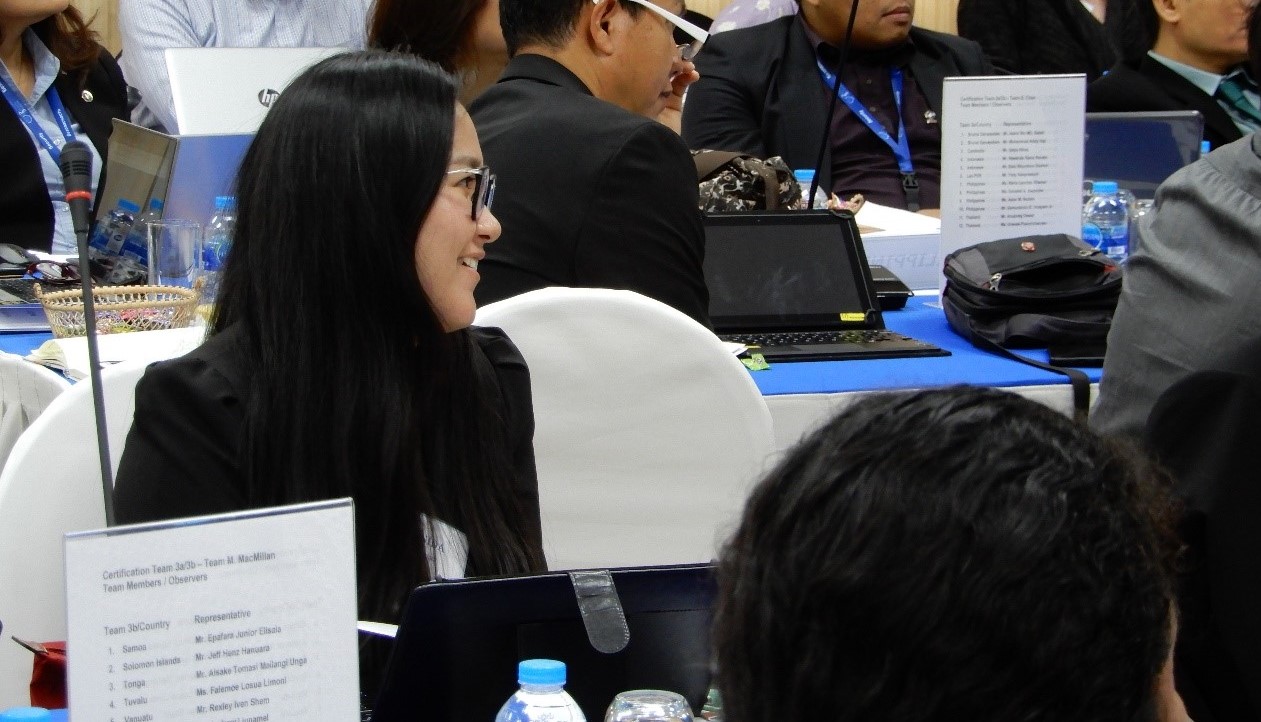Strengthening international postal security within Asia and the Pacific

BANGKOK, 12 June 2019 - The Universal Postal Union (UPU) and the World Customs Organization (WCO) Joint Security Capacity Building Workshop in the Asia Pacific region brought in experts from the International Narcotics Control Board (INCB) to strengthen capacity to address the increasing threat posed by dangerous substances, in particular fentanyls and their analogues, through the international postal network. The workshop, held from 10 to 13 June, at the Asian-Pacific Postal Union (APPU) Training Centre of Thailand Post in Bangkok, included officers from 29 Asia-Pacific countries and territories and was a practical outcome of the UPU-INCB cooperative agreement signed in May 2018.
Sixty (60) officers from postal security and customs units located in Afghanistan, Bangladesh, Bhutan, Brunei Darussalam, Cambodia, China, Fiji, India, Indonesia, Kiribati, Lao PDR, Malaysia, Maldives, Mongolia, Myanmar, Nauru, Nepal, New Zealand, Pakistan, Papua New Guinea, Philippines, Samoa, Sri Lanka, Solomon Islands, Thailand, Tonga, Tuvalu, Vanuatu and Vietnam, were joined by ten experts from the UPU, APPU, APP, USIPS, WCO and INCB, in the four-day training event. INCB trained officers to identify and share information on the sources and distribution of dangerous substances, such as fentanyls, currently trafficked through the postal and express courier streams, and to apply appropriate handling methods.

Photo: INCB trained officers on features of the IONICS platform using its rapid training approach
Acknowledging the need for some Asia-Pacific governments to improve capacity to interdict non-schedule substances, such as new psychoactive substances (NPS), non-medical synthetic opioids (e.g., fake tramadol, oxycodone) and fentanyl-related substances, many participants highlighted the need for practical information exchange and collaboration with national and international agencies to effectively respond to the threats posed by the illicit manufacture, trafficking and abuse of these substances. INCB experts highlighted the importance of global intelligence sharing tools available to the Asia-Pacific region, such as those provided by the WCO, UPU and INCB, to counter the trafficking of these dangerous substances that are not controlled internationally. Dawn Wilkes, UPU Security Programme Manager, further stressed that using available expertise within Asia and the Pacific is crucial to sustainably respond to, and communicate threats of, dangerous substances in the mail stream.
Fumio Ito, global manager of Project ION stressed the importance of providing knowledge and skills training to frontline officers to safely handle dangerous substances shipped through the international post, express mail and courier services. Mr. Ito stated: "only through rapid voluntary sharing of intelligence across agencies and countries in Asia and the Pacific, can frontline officers stem the flow of some very dangerous substances". Officers also received practical information and materials to safely respond to the threats and risks posed by these dangerous substances and were trained on the effective use of the IONICS communication platform to send and receive intelligence and alerts that support domestic and international trafficking investigations.
The Board's global OPIOIDS Project and Project ION support Governments' capacity to respond to changing trafficking, online marketing and sales patterns of NPS, non-medical synthetic opioids and fentanyl-related substances and their precursors, by building trust, improving communication and facilitating information sharing that interdict distribution of these dangerous substances.
Click
here to learn more about the OPIOIDS Project
Click
here to learn more about the Project ION
Click
here to learn more about INCB Precursor Controls